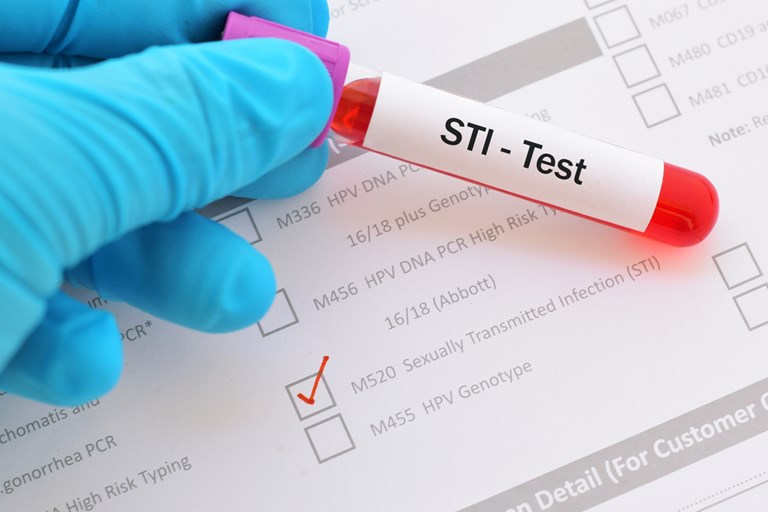In 2020, there were around 317,901 diagnoses of new sexually transmitted infections (STIs) among England residents. That’s thousands of people taking steps to tackle untreated STIs – but what about the ones who remain undiagnosed?
Many common STIs are notorious for not displaying any symptoms, meaning they may often go undetected, but that does not mean there are no long . In the absence of STI side effects, it’s possible you won’t realise you’ve contracted an infection – or you may be aware but are hoping it will go away on its own. But this isn’t the case. Without treatment, many common STIs such as chlamydia and gonorrhoea can lead to potentially serious problems.
The good news is most STIs can be treated, although treatment is most effective when started as soon as possible. If you’ve had unprotected sex with a new partner or your sexual partner has any symptoms, you should seek medical advice and arrange an online consultation with Pharmacy2U to avoid long-term damage in the future.
Chlamydia
With more than 200,000 diagnoses made in 2015, chlamydia is the most commonly diagnosed STI in England. Around three-quarters of people who have this bacterial infection will not show signs and symptoms. When symptoms of chlamydia are present, these can include pain during urination, unusual discharge and swelling of the testicles.
Long-term effects of chlamydia
Left untreated, chlamydia can lead to potentially serious complications. In men, these include:
- Inflammation of the testicles. Chlamydia can spread to the tubes that hold sperm (the epididymis), causing pain and swelling. This inflammatory condition is known as epididymitis and can affect fertility if left untreated. Antibiotics are typically used to treat epididymitis.
- Reactive arthritis. Sexually acquired reactive arthritis (SARA) is where your joints, eyes or urethra become inflamed. Treatments such as non-steroidal anti-inflammatory drugs (NSAIDs) can relieve the symptoms, but there is currently no cure. This condition can occur in women who have had chlamydia too, although it is less likely.
In women, long-term effects include:
- Inflammation of the pelvis. Untreated chlamydia can spread to the womb, ovaries or fallopian tube, leading to a condition called pelvis inflammatory disease (PID). This can lead to infertility, chronic pelvic pain and an increased risk of ectopic pregnancy (pregnancy outside of the uterus).
- Complications in pregnancy. If you’re pregnant with the infection and haven’t had chlamydia treatment, you can pass the infection to your baby. This can lead to babies developing infections such as conjunctivitis and pneumonia – and can cause premature birth.
Gonorrhoea
Gonorrhoea is the second most common bacterial STI in the UK after chlamydia – with more than 41,000 cases of gonorrhoea diagnosed in England alone in 2015.
Anyone who has unprotected sex can catch it, however, symptoms don’t always show. One in 10 infected men show no symptoms and half of all women with the STI don’t experience any gonorrhoea symptoms. When symptoms do show, they typically include thin white, yellow or green discharge from the vagina or penis, pain when urinating and bleeding between periods.
Long-term effects of gonorrhoea
If you’re worried you may be at risk of this infection, it’s important to get tested as soon as possible. Left untreated, gonorrhoea can spread to other body parts, leading to more serious health problems in the future, including:
- Pelvis inflammatory disease (PID). 10-20% of all untreated gonorrhoea cases lead to this infection of the female upper genital tract, leading to chronic pelvis pain, ectopic pregnancy, and infertility.
- Problems during pregnancy. Pregnant women with untreated gonorrhoea can suffer premature labour and even miscarriage. The infection can pass to the baby, causing them to be born with conjunctivitis. If the baby isn’t treated with antibiotics as soon as possible it can lead to permanent vision damage.
- Infection of the testicles. Untreated gonorrhoea can cause a painful infection in the prostate gland and testicles. In a small number of cases this can lead to reduced fertility.
- Life-threatening infections. Although rare, untreated gonorrhoea can spread through the bloodstream and cause dangerous infections such as septicaemia in other parts of the body.
HPV
HPV is the name of a common virus. It infects the skin and any moist membrane (mucosa), such as:
- the cervix
- the lining of the mouth and throat
- the vagina, vulva and anus (back passage).
HPV is usually passed on through sexual contact, which can make some people feel worried or embarrassed. But it is nothing to be ashamed of. Because HPV lives on our skin, it is easy to get and difficult to completely protect against. At some point during our lives, 8 in 10 men and women will get HPV. In most cases, your immune system will get rid of HPV without it causing any problems.
Long-term effects of HPV
When the body’s immune system can’t get rid of an HPV infection with oncogenic HPV types, it can linger over time and turn normal cells into abnormal cells and then cancer. About 10% of women with HPV infection on their cervix will develop long-lasting HPV infections that put them at risk for cervical cancer. Similarly, when high-risk HPV lingers and infects the cells of the vulva, vagina, penis, or anus, it can cause cell changes called precancers. These may eventually develop into cancer if they’re not found and removed in time. These cancers are much less common than cervical cancer. Much less is known about how many people with HPV will develop cancer in these areas.
Syphilis
Syphilis is a bacterial infection that's usually caught by having sex with someone who's infected. It's important to get tested and treated as soon as possible if you think you might have syphilis, as it can cause serious problems if it's left untreated. It can usually be cured with a short course of antibiotics.
You can catch syphilis more than once, even if you have been treated for it before.
Long-term effects of Syphilis
Without treatment, your syphilis will likely continue to progress. It can be 10 or 20 years before you experience the worst effects. Eventually, untreated syphilis can lead to damage to the brain, eyes, heart, nerves, bones, joints, and liver. You could also become paralyzed, blind, demented, or lose feeling in the body. Untreated syphilis can also lead to stillborn or developmentally delayed babies.
Even if you have been cured of syphilis, you could still get it again.
HIV and Aids
An estimated 103,700 people in the UK were living with HIV at the end of 2014. The virus attacks the immune system – leaving you more prone to infections and disease – and is primarily caught by having unprotected sex.
Though there is no cure for HIV, early diagnosis and treatment can enable most people with the virus to live long and healthy lives. However, around 18,100 people living with HIV in the UK do not know they are infected with HIV and have not yet been diagnosed.
The main symptom is a flu-like illness, also known as seroconversion illness. This occurs in up to eight out of 10 people infected with HIV (usually a few weeks after infection) and can consist of fever, sore throat and a body rash. Other symptoms include:
- Tiredness
- Joint pain
- Muscle pain
- Swollen glands
However, these are common symptoms for many other conditions – and once the initial symptoms wear off, HIV may not show any symptoms for years. But it’s crucial to get tested, as late diagnosis has a ten-fold increased risk of death compared to those diagnosed promptly.
Long-term effects of HIV
- Weight loss
- Chronic diarrhoea
- Night sweats
- Skin problems
- Damage to the immune system
In 2014, 40% of people newly diagnosed with HIV were diagnosed late, after they should have started treatment – putting themselves at risk to the serious complications above.
To test for HIV, you’ll need an HIV test. With Pharmacy2U, you can provide a blood sample to test for signs of infection from the convenience of your own home.
This year is also the fifth annual National HIV Testing Week. Starting on Saturday 19th November 2016, the week promotes HIV testing to gay and bisexual men and black African men and women (the groups with the highest HIV rates).
But with an estimated 36.7 million people worldwide living with HIV in 2015, it’s important that anyone who has had sex without a condom and suspects they may be at risk of HIV gets tested.
How to prevent STIs
Using a condom when you have sex is the best way to avoid catching an STI, however here are a number of things you can do to help prevent the risk of exposure to infections.
These include:
- Talking with your partner(s) about STIs, sexual health and contraception use before having sex.
- Getting tested, along with your partner before sexual activity. Many STIs have no symptoms at all so it’s safer to get tested.
- Avoiding sex when under the influence of alcohol or drugs as this can reduce your ability to make good decisions.
- Some clinicians may recommend that you have a vaccine against Human Papillomavirus (HPV) and Hepatitis B (Hep B).

